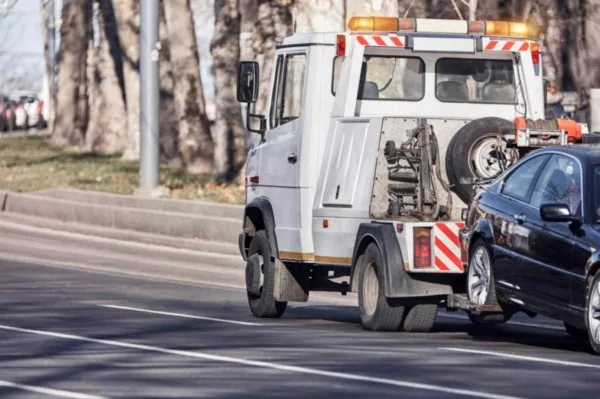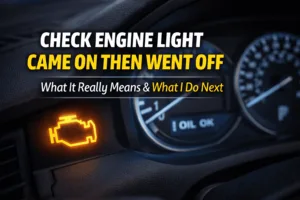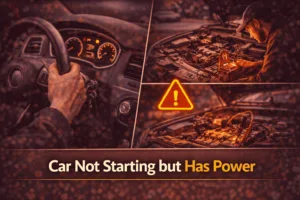Car repossession can be a stressful and overwhelming experience. When faced with financial difficulties, it’s crucial to understand how repossession laws work and what options are available to protect yourself.
In the United States, repossession laws vary by state, and some loopholes within these laws may provide temporary relief or alternative solutions for borrowers. Whether it’s understanding the nuances of how your lender can legally repossess a vehicle or exploring ways to regain possession, knowledge is a powerful tool in these situations.
This guide delves into the complexities of car repossession laws across various states, focusing on key differences and potential loopholes that borrowers can use to their advantage.
From negotiating with lenders to leveraging state-specific protections, this blog provides actionable insights to help you navigate the challenges of car repossession and retain control over your vehicle.
Understanding Car Repossession
Car repossession typically occurs when a borrower fails to meet the terms of their loan agreement, such as missing payments. Lenders have the right to take back the vehicle as collateral for the unpaid loan. However, the process is governed by state and federal laws, which outline what lenders can and cannot do.
General Repossession Rules:
- Loan Default: A borrower is considered in default when they miss payments, though the definition of default varies by state and contract terms.
- No Breach of Peace: Lenders cannot use force, threats, or unlawful methods to repossess a vehicle.
- Notification: Some states require lenders to notify borrowers before repossession or sale.
State-Specific Repossession Loopholes
Different states offer varying levels of protection for borrowers, often through specific requirements or regulations that lenders must follow. Understanding these differences is key to identifying possible loopholes.
1. California
- Right to Reinstate: Borrowers have the right to reinstate their loan by paying missed payments, fees, and penalties before the car is sold.
- Notification Requirement: Lenders must notify borrowers 15 days before selling the vehicle.
- Loophole: Borrowers can use this time to negotiate with lenders or secure alternative financing.
2. Texas
- Self-Help Repossession: Lenders can repossess without a court order, but they must avoid breaching the peace.
- Storage Fees: Borrowers must pay storage fees to reclaim their car after repossession.
- Loophole: If the lender fails to comply with storage fee regulations, borrowers may challenge the repossession.
3. Florida
- Notice of Intent to Sell: Lenders must provide notice before selling the car, allowing borrowers to repay the debt or dispute the repossession.
- Loophole: Borrowers can use this period to challenge inaccuracies in the loan agreement or repossession process.
4. New York
- Court Involvement: Repossession often requires a court order, providing more time for borrowers.
- Right to Cure: Borrowers can reinstate their loan by paying overdue amounts before repossession.
- Loophole: The judicial process allows borrowers to contest repossession in court.
Common Loopholes in Car Repossession Laws
Beyond state-specific rules, there are general loopholes that borrowers across the country can explore.
1. Improper Notice
Many states require lenders to notify borrowers before repossession or sale. If a lender fails to provide proper notice, the borrower can contest the repossession.
2. Breach of Peace
Lenders cannot break the law or disturb the peace during repossession. Borrowers can use evidence of unlawful actions to challenge the process.
3. Loan Agreement Discrepancies
Errors or inconsistencies in the loan agreement may give borrowers grounds to dispute repossession. Carefully review your contract for inaccuracies.
4. Statute of Limitations
If the lender takes too long to act on a defaulted loan, the borrower may argue that the statute of limitations has expired.
5. Bankruptcy Protections
Filing for bankruptcy can temporarily halt repossession and provide a chance to negotiate new terms with lenders.
How to Protect Yourself from Car Repossession
1. Understand Your Loan Agreement
Read your loan contract thoroughly to understand your rights and obligations. Knowing the terms can help you identify any breaches by the lender.
2. Communicate with Your Lender
If you’re struggling to make payments, reach out to your lender early. Many lenders are willing to negotiate payment plans or deferments to avoid repossession.
3. Document Everything
Keep records of all communications with your lender, including emails, letters, and payment receipts. This documentation can be crucial if you need to contest a repossession.
4. Seek Legal Advice
An attorney specializing in repossession laws can help you navigate complex situations and identify potential loopholes.
State Comparisons
States with Strong Borrower Protections:
- Massachusetts: Requires a court order for repossession.
- Connecticut: Allows borrowers to reinstate loans even after repossession.
States Favoring Lenders:
- Alabama: Lenders can repossess without prior notice.
- Mississippi: Minimal borrower protections during repossession.
Steps to Take After a Car Repossession
If your car has been repossessed, there are still options to recover it or mitigate financial consequences:
- Contact Your Lender: Ask for the payoff amount or negotiate a reinstatement.
- Check for Violations: Review the repossession process to identify any breaches of state laws.
- File a Complaint: If you believe the repossession was unlawful, file a complaint with your state’s consumer protection agency.
- Consider Bankruptcy: This can stop repossession proceedings and provide time to address debts.
Final Thoughts
Car repossession laws are complex and vary widely by state. By understanding these laws and potential loopholes, borrowers can better navigate challenging financial situations and protect their vehicles.
Whether it’s negotiating with lenders, leveraging state-specific protections, or seeking legal advice, staying informed is your best defense. With the right approach, you can minimize the impact of repossession and work towards regaining financial stability.





